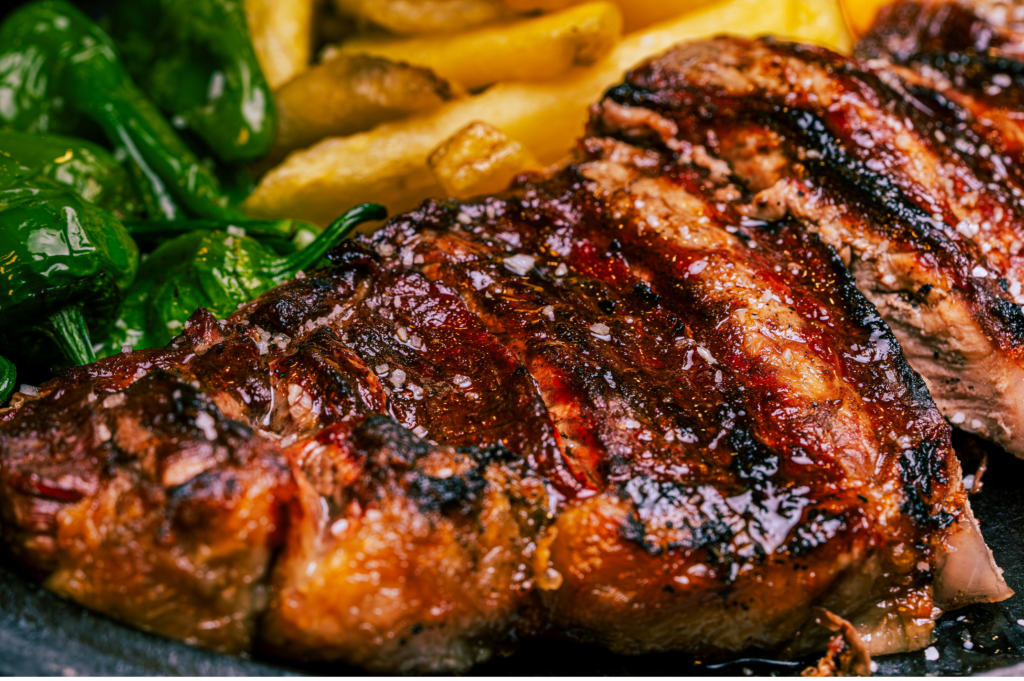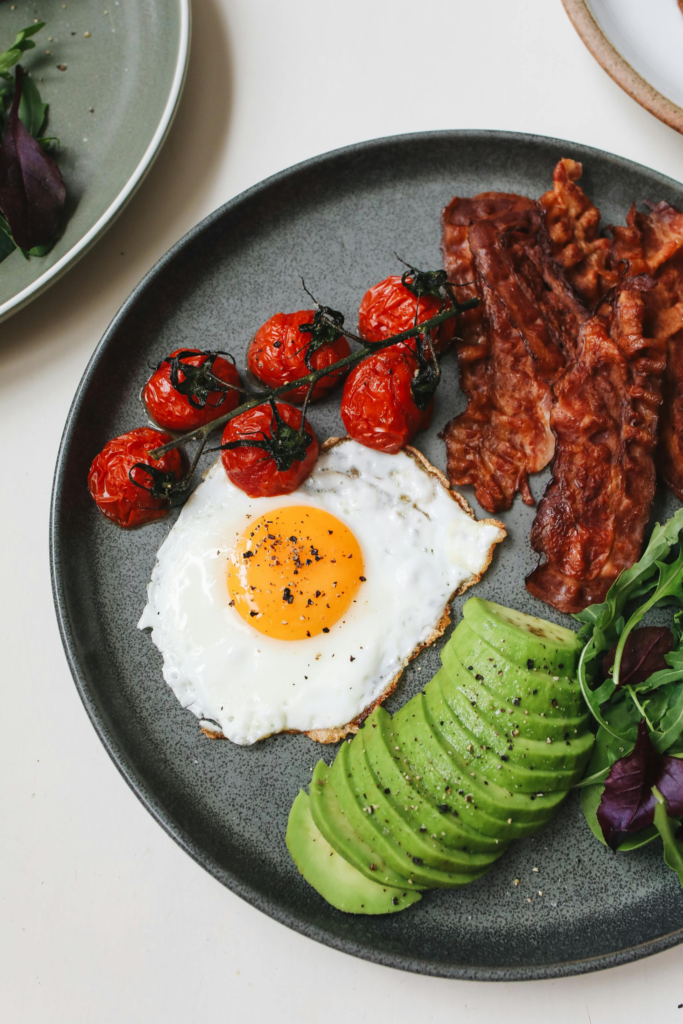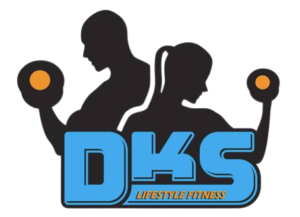
Tracking calories is something no one wants to do and understandably so. It takes the enjoyment out of eating and can possibly ruin your relationship with food. However, it is a necessary evil in the beginning of a fitness journey.
If you have been working out tirelessly for several months or years and have no idea why your body isn’t transforming, it’s because you’re not eating in a caloric deficit and you’re not eating balanced macronutrients.
This article is really going to stress the importance of tracking your calories at the beginning of a fat loss journey.
Fitness is a Skill Set
Personal fitness is a skill set just like anything else. Its not that “different things work for different people”. There are a set of skills you need to master, and tracking calories is one of those core skills.
People tend to forget that fitness is a profession, and every profession has what’s known as best practices for success.
- Information Technology has a set of best practices
- Project Management has a set of best practices
- Personal Finance has a set of best practices
- Engineering has a set of best practices.
- Partner Dancing has a set of best practices
Guess what, personal fitness also has a set of best practices.
You need to learn how to eat at a caloric deficit, track macronutrients, and strength-train effectively, not strength-train every day, but strength-train just enough for pure fat loss.
Tracking Calories is the Closest You Will Get to Dietary Freedom
If you want to have the luxury of eating what you want and still get into your best shape ever, you must be willing to track calories.
Of course, majority of your calories will come from minimally processed high-quality foods, but you can still fit in junk you personally enjoy. You can even have some junk every single day if your heart desires.
Regardless of what you do, that causes you to lose weight, it’s because you were able to induce caloric deficit.
There is nothing unique about:
- Low-carb diets
- Low-fat diets
- Portion-control
- Avoiding sugar
- Vegan diets
- One meal a day diet
- Avoiding red meat
If you found weight loss success with any of these approaches, it’s because psychologically it helped you eat at a caloric deficit.
The question you must ask yourself is “Can I do this for the rest of my life?” If the answer is no, then you defiantly need to count calories.
The problem is many people find short-tern success with these diets, then they realize they hate them and can’t do them forever.
Once that happens, they gain back all the weight they lost, because they don’t really understand weight loss science.
The Difference Between Weight Loss and Fat Loss

The phrases “losing weight” and “losing fat” are often used interchangeably. There are a few similarities, but at the same time there are differences.
Weight Loss
When people just want to lose weight, they want to see the scale go down as quickly as possible. They don’t really care what kind of weight they’re losing.
Truthfully, weight loss is very easy. You just have to find some kind of way to put yourself in a caloric deficit and you’ll lose weight.
If you cut back on some of your routine dietary behaviors like:
- Consuming liquid calories
- Eating highly-processed foods
- Snacking
- Drinking a lot of alcohol
You will lose weight. If you add in daily cardio on top of reducing bad dietary behaviors, you’ll lose weight.
Fat Loss
Fat loss has a bit more technicality, but the concept is still the same. You need to be in a caloric deficit to lose fat.
However, you need to make sure your diet, training, and sleep is optimized so that you’re either building or retaining muscle in a deficit.
You might be at a decent bodyweight for your height and gender, but you still have too much body fat for your liking.
In this case, you want to:
- Eat at a small to moderate caloric deficit
- Perform heavy resistance training with an emphasis on progressive overload
- Get the right amount of protein for your body
- Have a balance of Carbohydrates and Fats
- Sleep 7 or more hours per night.
- Stay active for at least 60 minutes a day.
Obviously, you don’t want to lose 20 pounds on the scale just to find out only 3 or 4 pounds of it was actually fat. That would put your metabolism in a negative place long-term and you won’t have sustainable weight loss.
Also, you won’t look significantly better. You would just look like a smaller version of yourself. On the other hand, if you lose 20 pounds and it was pure bodyfat, you will turn the heads of people around you.
Portion Control is Not a Reliable Fat Loss Strategy
Portion control is a useless way of losing fat. You can eat small portions of food that are very calorically dense. At the same time, you can eat large portions of food that don’t have as many calories.
Just because you’re eating frequently, but very little portions, doesn’t mean you’re not overconsuming calories. They do add up quickly by the end of the day.
Let’s say you have a 300-calorie cookie for breakfast. You are hungry and don’t have time to cook. The cookie is a high-calorie, low-portion food that won’t keep you full very long.
Because the 300-calorie cookie is empty calories and deficient in micronutrients, you won’t be satiated for long. As a matter of fact, it will just make you hungrier.
Take this scenario. You cook a 200-calorie bowl of oatmeal for breakfast. Maybe you add a tablespoon of pure maple syrup to make it tasty. That oatmeal bowl will be higher in portion, but lower in calories.
The oatmeal bowl would also keep you satiated longer than the cookie. Therefore, it’s better for fat loss even though it’s higher in portion.
Ketogenic Diets are Not Effective for Long-Term Fat Loss

Many people swear by ketogenic diets when it comes to fat loss. It may work in the short-term, but long-term, it’s not sustainable for most of the population.
So, what exactly is the ketogenic or keto diet?
It is a high-fat, moderate-protein, low-carbohydrate diet. In other words, you are keeping your carbs under 50grams per day. That is ridiculously low.
The idea is to place your body in a state of ketosis, so your body becomes completely fat adaptive. If you can make your body fat adaptive, you burn bodyfat very quickly.
The Problems with The Keto Diet
Number 1: There is nothing special about the keto diet when it comes to losing fat.
Psychologically, it might help some people eat at a caloric deficit to lose fat, but the reason it worked is because they were able to induce a caloric deficit.
It’s a cop out excuse since people are too lazy to track their calories. They would rather just cut out all their starchy carbs and hope for the best.
Number 2: The kind of weight you lose on keto is not the kind of weight that would impress anybody.
When you go on keto, you might lose a lot of weight in the first few weeks, but you have no idea what you lost. Also, your physique won’t necessarily look better.
Typically, you lose a lot of water weight on keto, but you wrongly assume it’s fat weight. This is why weight loss is so rapid on ketogenic diets. Carbs bind to water and water weight is usually the weight you lose the fastest.
Your body composition doesn’t change when you lose a bunch of water weight. It changes when you lose a bunch of fat weight.
This is why fat loss is such a slow process. The goal is not to lose weight as quickly as possible. The goal is to change your body composition.
Number 3: Your training performance will suffer on Keto
Sufficient carbohydrate intake is essential if you’re someone who lifts weights. Less than 50 grams of carbs a day isn’t going to cut it.
Carbohydrates are the best fuel source for anaerobic activity. Weightlifting is inherently anaerobic. You need carbohydrates to replenish glycogen storage after an intense workout.
Carbs work with protein in building muscle. This is one the reasons why keto diets are terrible for long-term fat loss.
If you need a better explanation of why carbs are essential, go to this article Why Carbohydrates are Important for Fat Loss.
Number 4: Your sleep quality will decline on Keto.
Carbohydrates release a neurotransmitter in your brain called serotonin. This helps you feel relaxed and sleepy. If your diet is too deficient in carbs, you will have irregular sleep patterns.
It’s better for sleep to finish your day of eating with some starchy carbs as opposed to a protein shake.
This is why carb-backloading is so effective for aggressive fat loss. When you’re in a large caloric deficit, it will be a struggle to achieve satiety no matter how much protein you eat.
However, if you implement intermittent fasting and carb-backloading, it would be easier to stay full in a big deficit.
Basically, with carb-backloading you’re eating no carbs or very low-carb during the day. You would be eating most of your carbohydrates post workout or at nighttime.
Eating most of your carbs at night helps you sleep better in a calorie deficit.
We will discuss carb-backloading in greater detail in a later article.
Low-Fat Diets are Terrible for Sustainable Fat Loss
While cutting carbs seems to be the trend now a days, there is still a segment of the population that villainizes dietary fat.
Yes, we want to lose bodyfat but that doesn’t mean low-fat diets are the way to go.
Sufficient dietary fat is important for a number of reasons.
- You need a certain amount of fat to feel full after meals
- Fat is important for hormonal health.
- Fat makes your food taste good.
If you’re eating in a calorie-controlled environment, you won’t have to worry about overrating fats or any macronutrient.
If you need more information about macronutrients, go to this article Best Macronutrient Split for Fat Loss and Building Muscle.
Weight-Training Everyday is Not Helpful for Fat Loss Either
Is resistance training great for fat loss? Yes, without a question.
Is training everyday effective for fat loss? No, it is not.
There comes a point where you reach the law of diminishing returns regarding structured exercise.
The primary benefit you get with resistance training is building muscle. The secondary benefit you get from resistance training is burning fat.
Exercise accounts for only 20-30% of your total daily energy expenditure or TDEE.
For instance, if you’re someone with a basal metabolic rate of 2,000 calories and you start working out 3-5 days a week, your maintenance calories would increase to 2,500.
If you’re someone with a basal metabolic rate of 2,000 calories and you start working out 6-7 days a week, your maintenance calories would increase to 2,800.
We know we can’t out-train bad dietary habits. We know exercise alone is useless for fat loss. The problem is we don’t behave like we know.
Realistically, you only need to train 3 days a week at most to maximize fat loss and muscle growth. You should also be training on non-consecutive days.
In other words, don’t train 2 days in a row. You need at least 48 hours of rest in between lifting sessions so that your central nervous system can recover.
When your CNS can recover optimally you can get stronger as a natural drug-free lifter.
You would also be able to train more muscle groups in a lifting session.
If you want to learn more about the amazing benefits of 3 workouts a week, go to this article The Fitness and Lifestyle Benefits of Training Only 3 Days a Week.
If you’re interested in learning more about how metabolism works, go to this post 3 Ways Your Body Burns Calories in a Day.
Conclusion
You need to track your caloric intake in the beginning. Many people complain they are struggling to lose weight/fat, but when you ask them how many calories they’re eating a day, they can’t tell you.
They will blame:
- Genetics
- Hormones
- Age
- Carbohydrates
They will blame everything except the fact that they are not willing to learn the skill set associated with fat loss.
Track your calories. It will make a world of difference in your fitness.
